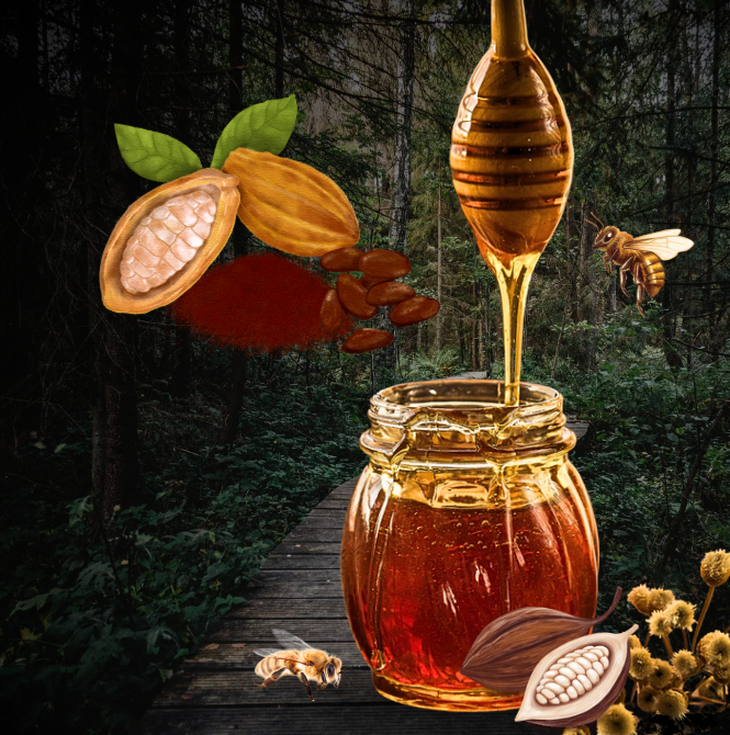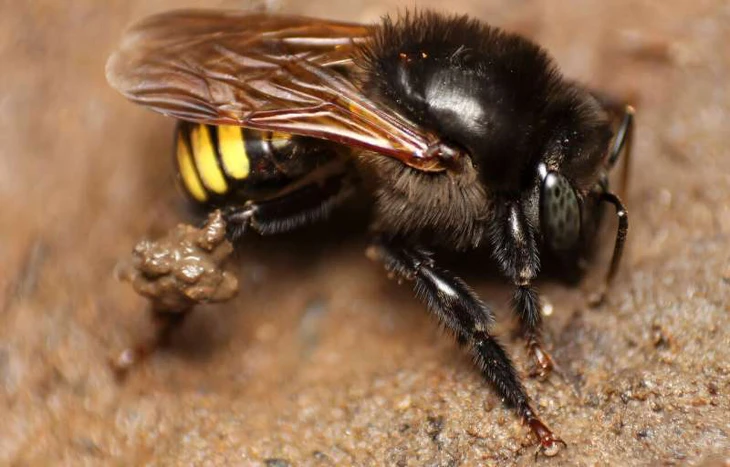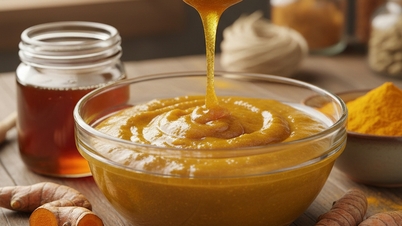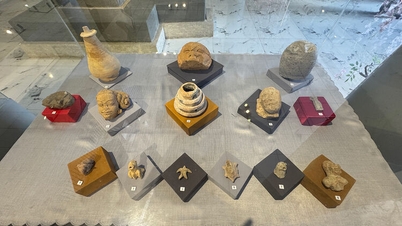
Chocolate-flavored honey from cocoa husks: Green technology turns by-products into new premium specialties - Photo: AI
Chocolate-flavored honey from cocoa husks is becoming a new specialty with great potential thanks to green technology. The work published in the journal ACS Sustainable Chemistry & Engineering by scientists from the State University of Campinas (UNICAMP), Brazil shows that native Brazilian honey can extract health-beneficial compounds from cocoa husks, giving it a unique chocolate flavor.
The special point of the study is the use of cocoa bean shells, which are considered waste, to extract active ingredients that are beneficial to health.
Cocoa pods are rich in theobromine and caffeine, two bioactive compounds linked to heart health and alertness. The team used honey from native Brazilian bees as a natural solvent to “pull” these compounds out of the pods using an ultrasound-assisted extraction technique.
The processed honey not only has a distinct chocolate flavor, but is also rich in polyphenols, which have antioxidant and anti-inflammatory effects.
Instead of using chemical solvents, scientists chose honey from stingless bees because it is thinner and has a lower viscosity than honey from European bees (Apis mellifera). This characteristic helps the honey penetrate the cocoa pod structure easily to dissolve biological compounds.
Five indigenous Brazilian honeys were tested: borá, jataí, mandaçaia, mandaguari and moça-branca. Mandaguari honey was used for process optimization due to its intermediate water content and viscosity. After optimization, the process was successfully applied to other honeys, demonstrating its high versatility and scalability across multiple source regions.
The ultrasonic extraction technique works by creating tiny microbubbles in the mixture of honey and cocoa shells. When these microbubbles burst, they release a large amount of energy in a very short time, creating local heat to break down the plant cell structure and release the active ingredients. This makes the extraction process faster, more efficient and does not require high temperatures or additional chemicals.
This is considered a green technique in the food industry because it saves energy, shortens production time and reduces post-extraction processing steps. The Path2Green sustainability assessment tool shows that the process scores +0.118 on a scale of -1 to +1, mainly due to the use of local ingredients and edible solvents.

The flavor of the product depends on the ratio of honey to cocoa husk. Some samples have such a strong chocolate flavor that tasters feel like they are enjoying a new cocoa product - Photo: Lucas Rubio/iNaturalist
According to the research team, the chocolate-flavored honey product is not only attractive in flavor but also rich in biological compounds. This opens up the potential for wide application in functional foods, natural cosmetics or even serving high-end cuisine .
The scientific team believes that cooperatives or small businesses that own local honey and cocoa sources can completely apply this process to create new high-value products, expanding their business portfolio.
Another benefit being investigated by the research team is the effect of ultrasound on microorganisms present in native honey. Unlike European honey, which can be stored at room temperature, native honey often needs to be refrigerated, dehumidified, or pasteurized. Ultrasound has the ability to disrupt bacterial cell walls, thereby stabilizing the honey and extending its shelf life without the need for complex processing steps.
The team is now preparing for further testing to determine whether this method could become a natural honey preservation solution in the future.
In the next phase, scientists plan to test the use of native honey as a solvent to extract active ingredients from other plant by-products, not just cocoa husks. This could open up a new direction for producing “greener”, more environmentally friendly raw materials for the food and cosmetics industries.
Source: https://tuoitre.vn/sieu-la-tao-ra-mat-ong-vi-chocolate-bang-cong-nghe-song-sieu-am-20251120100112704.htm




![[Photo] Visit Hung Yen to admire the "wooden masterpiece" pagoda in the heart of the Northern Delta](/_next/image?url=https%3A%2F%2Fvphoto.vietnam.vn%2Fthumb%2F1200x675%2Fvietnam%2Fresource%2FIMAGE%2F2025%2F11%2F21%2F1763716446000_a1-bnd-8471-1769-jpg.webp&w=3840&q=75)


![[Photo] National Assembly Chairman Tran Thanh Man holds talks with President of the Senate of the Czech Republic Milos Vystrcil](/_next/image?url=https%3A%2F%2Fvphoto.vietnam.vn%2Fthumb%2F1200x675%2Fvietnam%2Fresource%2FIMAGE%2F2025%2F11%2F21%2F1763715853195_ndo_br_bnd-6440-jpg.webp&w=3840&q=75)






























![[Photo] President Luong Cuong receives Speaker of the Korean National Assembly Woo Won Shik](/_next/image?url=https%3A%2F%2Fvphoto.vietnam.vn%2Fthumb%2F1200x675%2Fvietnam%2Fresource%2FIMAGE%2F2025%2F11%2F21%2F1763720046458_ndo_br_1-jpg.webp&w=3840&q=75)










































































Comment (0)